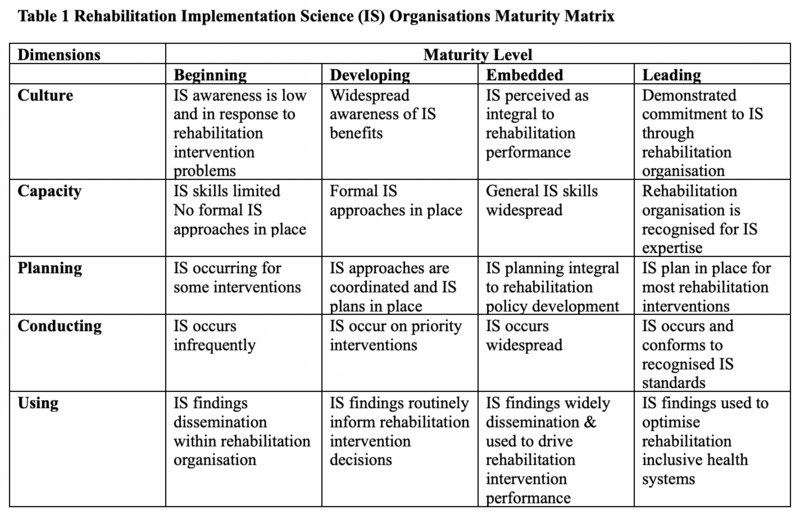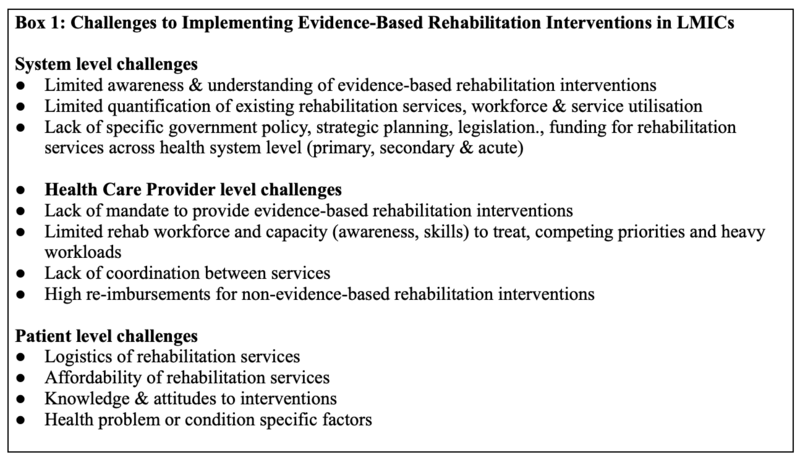Implementation Science: Pre-Implementation Stage
Top Contributors - Stacy Schiurring, Tarina van der Stockt, Jess Bell and Kim Jackson
Introduction[edit | edit source]
As rehabilitation is recognised as a complex multi-disciplinary process with many moving parts, within complex multi-level healthcare systems and involving multiple professionals, patients, families and carers (Morris 2019) pre-implementation efforts are important than ever. Adopting, implementing or sustaining any new rehabilitation interventions is challenging. Have you ever wondered why some professionals seem to adopt these interventions more easily, when others do not and why does this intervention work in some settings and not in others? When rehabilitation professionals implement new interventions in lower middle-income countries, they can experience a wide range of challenges at a systems, health care provider and or at a patient level. While many implementation challenges exist, implementation science can provide a way of thinking about these challenges and can facilitate implementation efforts.
This article can serve as a guide on how to plan implementation process efforts to adopt, adapt, spread or sustain new interventions.
Building Implementation Science Capability[edit | edit source]
The need to build implementation science expertise is recognised as urgently required to bridge the gap between evidence and practice, particularly in resource-poor or lower middle income countries (LMICs) (Alonge et al 2019, Ridde 2020, Semeere et al 2021)
All rehabilitation leaders and stakeholders and their organisations have differing implementation science capability it is important to reflect upon the implementation science maturity of an organisation to establish a baseline, then set about identifying implementation science strengths, gaps, readiness and priorities.
Challenges to Implementing Evidenced-based Interventions in LMICs[edit | edit source]
Please read this page to review the challenges of implementing evidence-based rehabilitation interventions that are known to exist in LMICs.
Challenges exist at a:
- System level: lack of specific government policy, strategic planning, legislation and funding for rehabilitation services across all health system level
- Healthcare provider level: limited rehabilitation workforce, capacity, competing priorities and heavy workloads
- Patient level: knowledge and attitudes about interventions
Resources[edit | edit source]
- bulleted list
- x
or
- numbered list
- x








